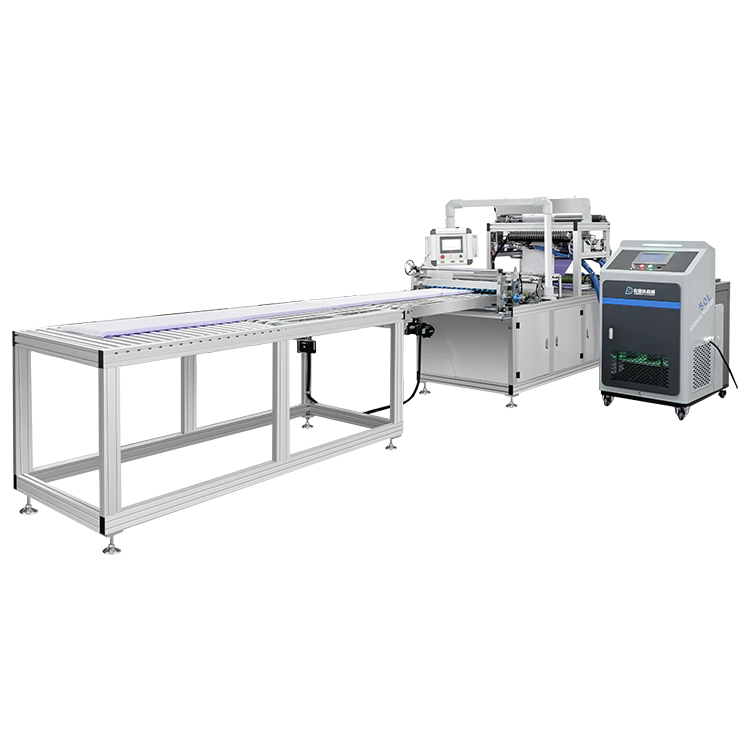The Essential Role of Air Filter Machines in Improving Air Quality
2024-10-08
In today’s world, air pollution is a growing concern, both indoors and outdoors. With the rising levels of pollutants, allergens, and harmful particles in the air, ensuring the air we breathe is clean has become a priority. This is where air filter machines play a crucial role. These devices are designed to purify the air, remove contaminants, and provide a healthier living or working environment. In this blog, we will explore the importance of air filter machines, how they work, and their various applications.
How Air Filter Machines Work
Air filter machines are equipped with advanced filtration technologies designed to trap airborne particles and improve air quality. These devices typically use one or a combination of the following filtering methods:
1. HEPA Filters (High-Efficiency Particulate Air): HEPA filters are highly effective in trapping tiny particles such as dust, pollen, pet dander, and even bacteria. They can remove up to 99.97% of particles as small as 0.3 microns, making them ideal for homes, offices, and hospitals.
2. Activated Carbon Filters: These filters absorb odors, gases, and volatile organic compounds (VOCs), which are commonly found in cleaning products, paints, and building materials. Activated carbon is excellent for removing smoke and chemical pollutants from the air.
3. UV-C Light Filters: Some air filter machines are equipped with UV-C light technology, which kills bacteria, viruses, and mold spores, further ensuring the air is safe and clean.
4. Electrostatic Precipitators: These filters use an electrical charge to attract and capture airborne particles, providing a low-maintenance option for air filtration.
5. Ozone Generators: Although not common in all air filters, ozone generators are sometimes used to eliminate odors and microorganisms. However, they should be used with caution as ozone can be harmful in high concentrations.
The Benefits of Using Air Filter Machines
1. Health Improvement
Air filter machines can significantly improve respiratory health by removing common irritants such as dust, allergens, and smoke. People with asthma, allergies, or respiratory conditions can benefit from breathing cleaner air, reducing the frequency of attacks and symptoms.
2. Allergy Relief
For individuals with allergies, air filter machines are indispensable. Pollen, mold spores, and pet dander are common triggers for allergic reactions. HEPA filters, in particular, are effective at removing these allergens from the air, providing relief for those who suffer from seasonal or year-round allergies.
3. Odor Control
Unpleasant odors from cooking, pets, smoke, or chemicals can linger in indoor spaces. Air filter machines with activated carbon filters are excellent at absorbing and neutralizing these odors, leaving the air fresh and clean.
4. Protection Against Airborne Diseases
In environments like hospitals and clinics, the risk of airborne diseases is high. Air filter machines, especially those with UV-C light technology, can help reduce the spread of infectious diseases by killing harmful microorganisms in the air.
5. Better Sleep
Clean air can lead to better sleep quality. By reducing irritants and allergens in the air, air filter machines help create a comfortable sleeping environment, which is especially beneficial for those with breathing difficulties.
6. Increased Indoor Air Quality (IAQ)
With modern buildings being more airtight for energy efficiency, the exchange of fresh air is often limited. This can cause indoor air to become more polluted than the air outside. Air filter machines enhance IAQ by continuously removing contaminants from the air, promoting a healthier indoor environment.
Applications of Air Filter Machines
1. Residential Homes
Home air filters are widely used to maintain healthy air quality in bedrooms, living rooms, and kitchens. They are particularly useful in homes with pets, smokers, or individuals with respiratory issues.
2. Commercial Buildings
Offices, schools, and commercial establishments often use air filter machines to ensure a healthy environment for employees and customers. Cleaner air can improve productivity and reduce sick days caused by airborne illnesses.
3. Healthcare Facilities
Hospitals, clinics, and nursing homes require high-grade air filtration systems to prevent the spread of infections and to protect patients with compromised immune systems. In these settings, HEPA and UV-C air filters are commonly used.
4. Industrial Settings
Factories, workshops, and other industrial spaces can have higher levels of pollutants due to chemicals, dust, and machinery emissions. Air filter machines designed for industrial applications are essential for maintaining safe air quality and complying with workplace health regulations.
5. Public Transportation
Air filter machines are increasingly being used in buses, trains, and airplanes to protect passengers from airborne pathogens, especially in densely populated or enclosed spaces.
Choosing the Right Air Filter Machine
When selecting an air filter machine, it is important to consider the following factors:
- Room Size: Ensure the machine is designed for the size of the space where it will be used. Larger rooms require more powerful machines.
- Filter Type: Choose a machine with the appropriate filter for your specific needs, such as a HEPA filter for allergens or an activated carbon filter for odors.
- Noise Level: Some machines can be noisy, which may be disruptive in bedrooms or offices. Look for quieter models if noise is a concern.
- Maintenance Requirements: Regular filter replacement is essential for optimal performance. Make sure to choose a machine with filters that are easy to find and replace.
Conclusion
Air filter machines are vital tools in improving indoor air quality and protecting health. Whether for residential or industrial use, these machines remove harmful particles, allergens, and pollutants from the air, ensuring a cleaner and safer environment. As air pollution continues to rise, investing in a high-quality air filter machine is a step toward better health and well-being.
By understanding how air filter machines work and their benefits, you can make an informed decision about which device is best suited to your needs. Clean air is not a luxury—it’s a necessity!



